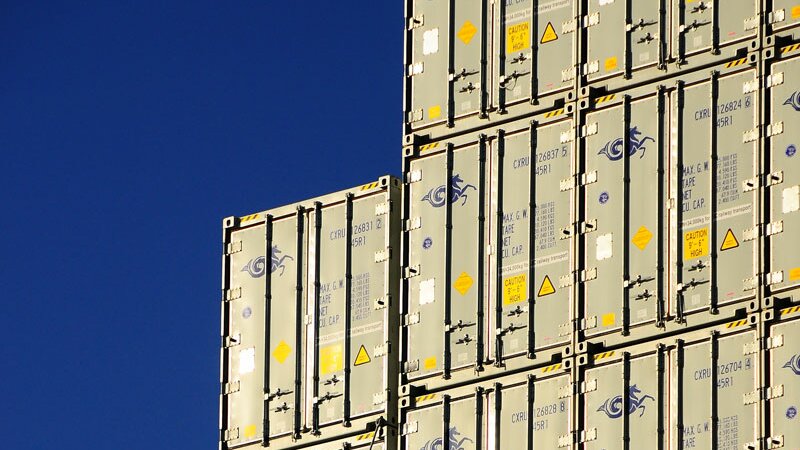Our new NorthStandard site is now live. There will be no new content or updates added to this site. For the latest information, please visit our new site north-standard.com.
Amendments (06-21) to the International Maritime Solid Bulk Cargoes (IMSBC) code – (voluntary implementation from 1 January 2023 and mandatory compliance from 1 December 2023)
As mentioned in the club’s article on Regulation Update 2022/23, members with ships carrying solid bulk cargoes are reminded that IMO Resolution MSC.500(105) – Amendments (06-21) to the International Maritime Solid Bulk Cargoes...

As mentioned in the club’s article on Regulation Update 2022/23, members with ships carrying solid bulk cargoes are reminded that IMO Resolution MSC.500(105) – Amendments (06-21) to the International Maritime Solid Bulk Cargoes (IMSBC) Code will enter into force on 1 December 2023. However, some contracting governments may apply these amendments in whole or in part on a voluntary basis from 1 January 2023.
Apart from revision to various existing individual schedules for solid bulk cargoes, following changes have been affected in the 2022 edition of the IMSBC Code:
1) The definition of Group A cargoes now includes ‘dynamic separation’ in addition to the ‘liquefaction’.
2) New definitions of “Cargoes which may undergo dynamic separation” and “Dynamic separation” have been added.
3) Existing schedule for AMMONIUM NITRATE BASED FERTILIZER (non-hazardous) has been deleted and replaced by AMMONIUM NITRATE BASED FERTILIZER, which is still a Group C entry covering ammonium nitrate-based fertilizers (ANBF) that do not meet any of the criteria on dangerous goods or material hazardous in bulk (MHB); particularly this schedule does not apply to ANBF cargoes assigned class 9 due to the trough test evidencing the presence of self-sustaining decomposition hazard.
ANBF cargoes included in this schedule are straight nitrogen fertilizers or compound fertilizers within the following composition limits:
- Straight nitrogen fertilizers must contain less than 2% chloride, and
- not more than 70% ammonium nitrate with organic materials; or
- not more than 80% ammonium nitrate mixed with calcium carbonate and/or dolomite and/or mineral calcium sulphate and not more than 0.4% total combustible organic material calculated as carbon; or
- mixtures of ammonium nitrate and ammonium sulphate with not more than 45% ammonium nitrate and not more than 0.4% total combustible organic material calculated as carbon.
- Compound NPK/NK/NP fertilizers
- mixtures of nitrogen with phosphate and/or potash containing not more than 70% ammonium nitrate and not more than 0.4% total combustible organic material calculated as carbon or not more than 45% ammonium nitrate and unrestricted combustible material; and
- either less than 20% of ammonium nitrate content or less than 2% of chloride
The shipper has to declare the ammonium nitrate content and the chloride content in accordance with 4.2 of the IMSBC Code.
The common fertilizers falling into this schedule include calicum ammonium nitrate, ammonium sulphate nitrate, ammonium nitrate with other sulphates (e.g., calcium or magnesium sulphate), and compound NPK/NP/NK fertilizers.
4) In addition to the above, a new AMMONIUM NITRATE BASED FERTILIZER – Group B, MHB (OH) entry has been added to capture cargoes that are neither harmless enough to be categorised as Group C cargoes nor dangerous enough to be classified as 4.2 dangerous goods.
ANBF transported under this schedule are uniform mixtures of nitrogen with or without potash and/or phosphate within the following composition limits:
-
- not more than 70% ammonium nitrate and not more than 0.4% total combustible organic material calculated as carbon or not more than 45% ammonium nitrate and unrestricted combustible material; and
- both the ammonium nitrate content is equal to or greater than 20% and the chloride content is equal to or greater than 2%
The shipper has to declare the ammonium nitrate content and the chloride content in accordance with 4.2 of the IMSBC Code.
This schedule does not apply to ANBF cargoes assigned class 9 due to the trough test result evidencing the presence of self-sustaining decomposition hazard.
5) Existing schedule for SUPERPHOSPHATE (triple, granular) - Group C has been deleted and replaced by SUPERPHOSPHATE (triple, granular) - Group B, MHB (CR) as it was noted that the dust of this cargo is corrosive to eyes.
6) New cargo schedules for CLAM SHELL – Group C, and LEACH RESIDUE CONTAINING LEAD - Group A and B, MHB (TX and CR)
The amendments will enter into force on 1 December 2023, with voluntary early implementation from 1 January 2023.
Members who are involved in the transport of solid bulk cargoes are recommended to pay due attention to their Flag State requirements for ships’ compliance.
Category: Loss Prevention

